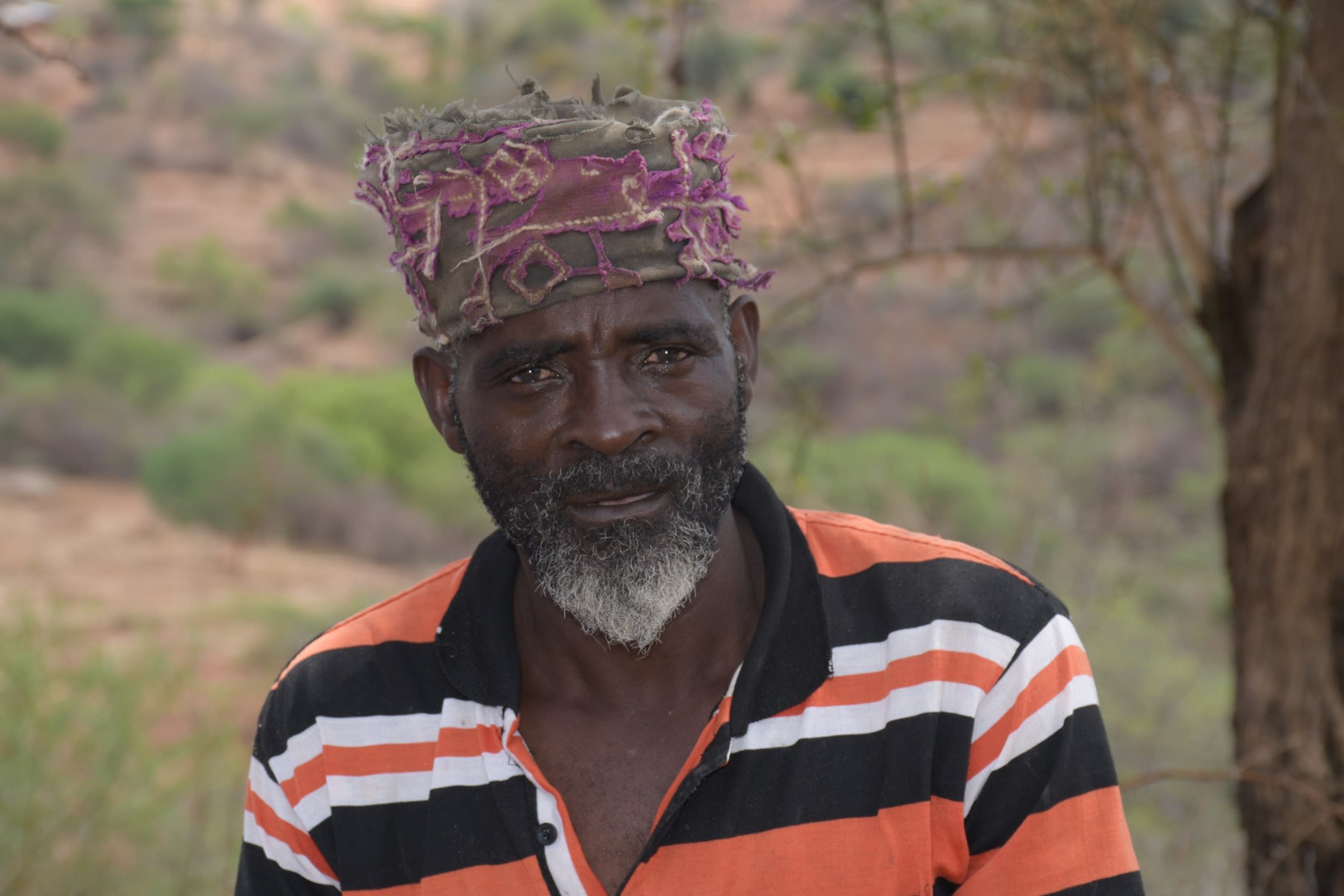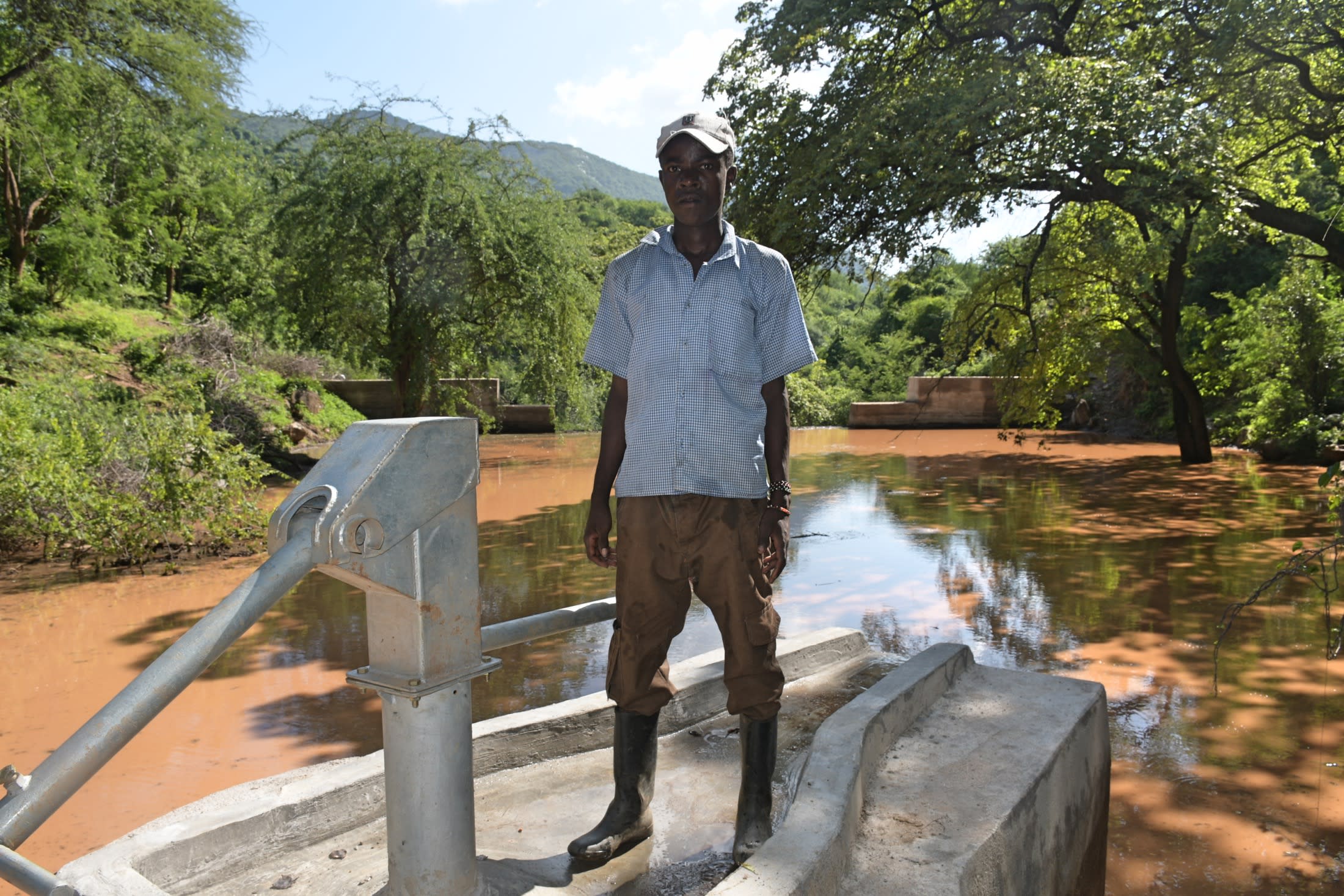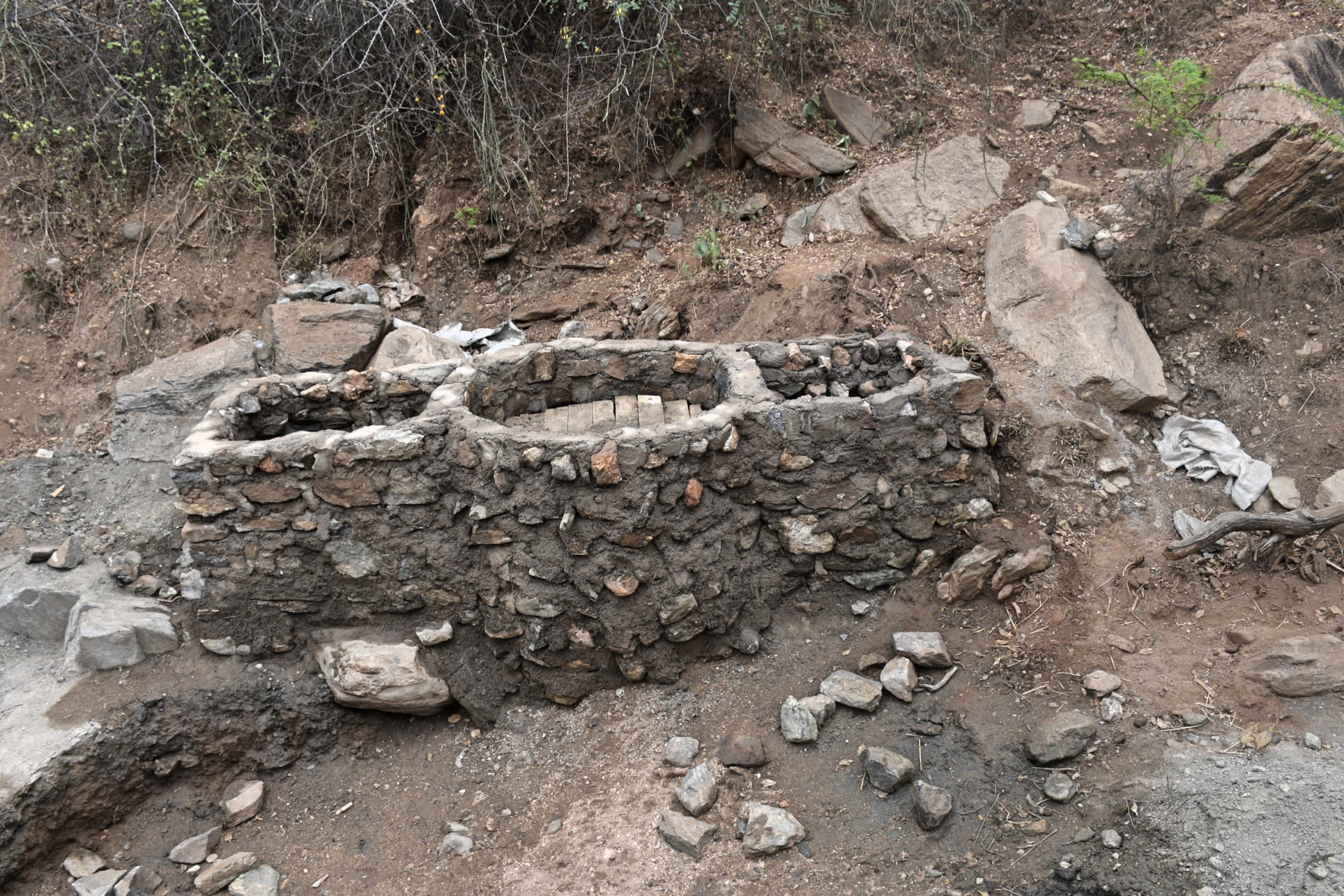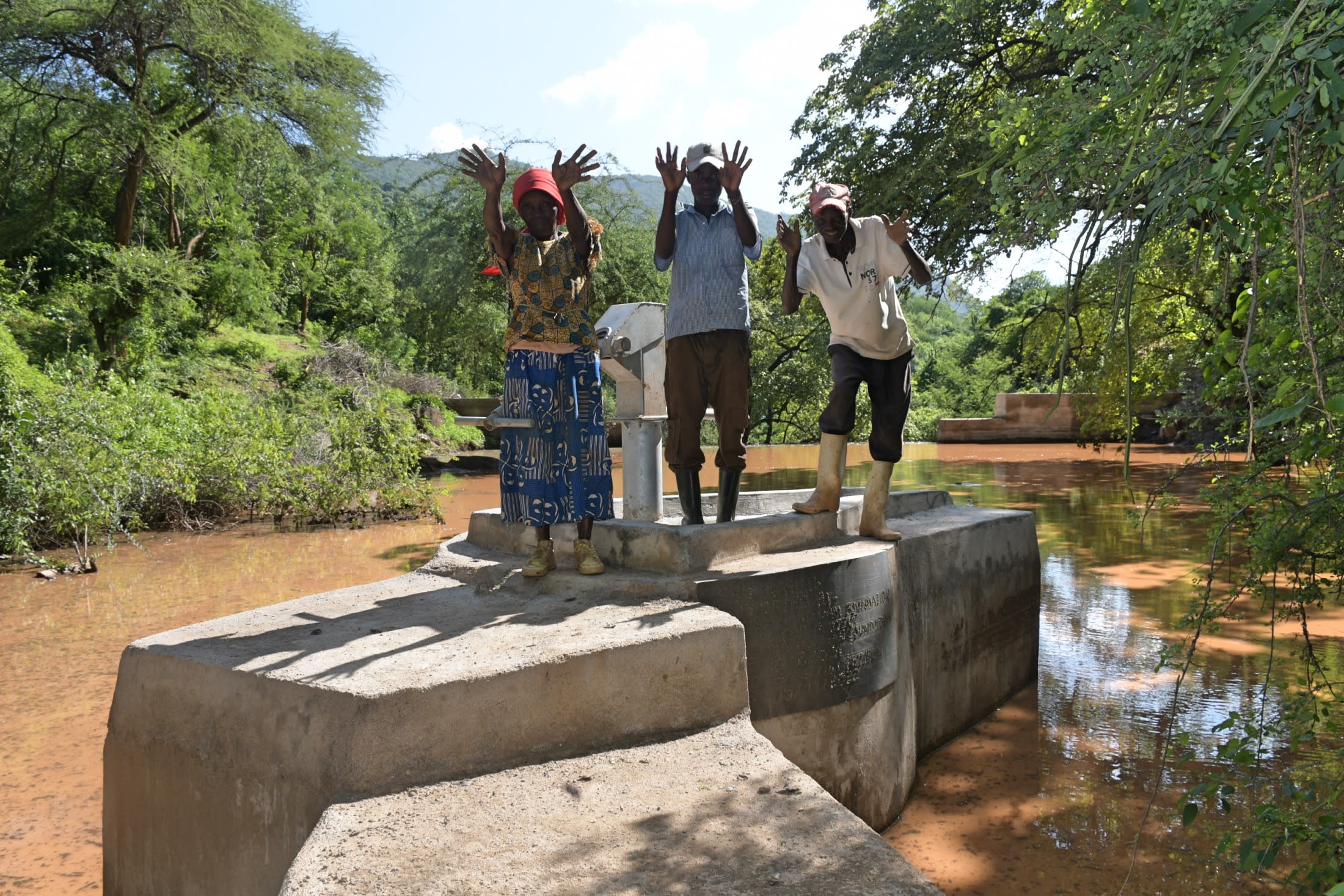Nzimba's residents wake up as early as 6 a.m. to search for water so they do not have to walk in the scorching sun later in the day. The village of 600 people mostly uses an unprotected spring, but the water is contaminated. There is also a shallow well nearby, but people cannot drink the water because it is salty. There are two sand dams and dug-wells in other communities farther away, but most people cannot afford to waste the time and energy required to collect water from there.
To collect water suitable for drinking, they must walk to the public tap sourced from a protected spring. It is nearly three kilometers (1.86 miles) away for most residents, and they can only retrieve water one day a week. Understandably, there are very long queues that waste people's valuable time.
"We mostly get our drinking water from the public tap at Kasioni town, which is about three kilometers away. Walking there and back is exhausting and leaves little energy for other important activities such as farming," said farmer Kilonzo Kyulu, 49, shown below.

He continued, "The public tap is also usually overcrowded because it only offers water once or twice weekly, which is inadequate for the entire community. The recently built sand dam offers fresh and clean water, but the area is hilly and [it] is exhausting to acquire water from it."
Since most residents walk several kilometers to reach the current water points, they often cannot tend to their daily duties adequately when they return home. Their incomes suffer as a result, and their daily hygiene practices are lacking.

Munyao K., 11 (shown above), said, "Since this area is hilly, going to the public water after school to fetch drinking water is exhausting and leaves me with little energy or time to focus on my studies. Despite the presence of the two sand dams and shallow wells in the region, the water is still inadequate for the entire community because of the long drought periods. We have to use the water sparingly, and therefore we cannot irrigate our farms to improve food security, and we still experience low levels of hygiene and sanitation."
This community needs its own safe, reliable water source located a reasonable distance from community members. Having a water point will allow people to maintain the time and energy required to conduct other vital tasks like increasing their livelihoods, practicing good daily hygiene, and studying.
Reliable Water for Kasilu
Our main entry point into this community has been the Kasilu Self-Help Group, which comprises households working together to address water and food scarcity in their region. These members will be our hands and feet in constructing water projects and spreading the message of good hygiene and sanitation to everyone.
Hand-Dug Well
This particular hand-dug well will be built adjacent to a sand dam project, which will supply clean drinking water once it rains. We have provided the group with the tools needed for excavation. With the guidance of our artisans and mechanics, the excavated well will be cased, sealed with a well pad, and then finished with a new AfriDev pump.
Excavation takes a month or more on average, depending on the nature of the rock beneath. Construction of the well lining and installation of the pump takes 12 days maximum. The well will be lined with a concrete wall including perforations so that once it rains, water will filter in from the sand dam.
This well will bring clean water closer to families.
New Knowledge
These community members currently do their best to practice good hygiene and sanitation, but their severe lack of water has significantly hindered reaching their fullest potential.
We will hold hygiene and sanitation training sessions with the Self-Help Group and other community members to teach essential hygiene practices and daily habits to establish at the personal, household, and community levels. This training will help to ensure that participants have the knowledge they need to make the most out of their new water point as soon as the water is flowing.
One of the most important topics we plan to cover is handling, storage, and water treatment. Having a clean water source will be extremely helpful, but it is useless if water gets contaminated when it is consumed. We will also emphasize the importance of handwashing.
The community and we firmly believe that all of these components will work together to improve living standards here, which will help to unlock the potential for these community members to live better, healthier lives.
We typically work with self-help groups for 3 to 5 years on multiple water projects. We will conduct follow-up visits and refresher training during this period and remain in contact with the group after all of the projects are completed to support their efforts to improve sanitation and hygiene.

 Protected Dug Well
Protected Dug Well
 Rehabilitation Project
Rehabilitation Project
































